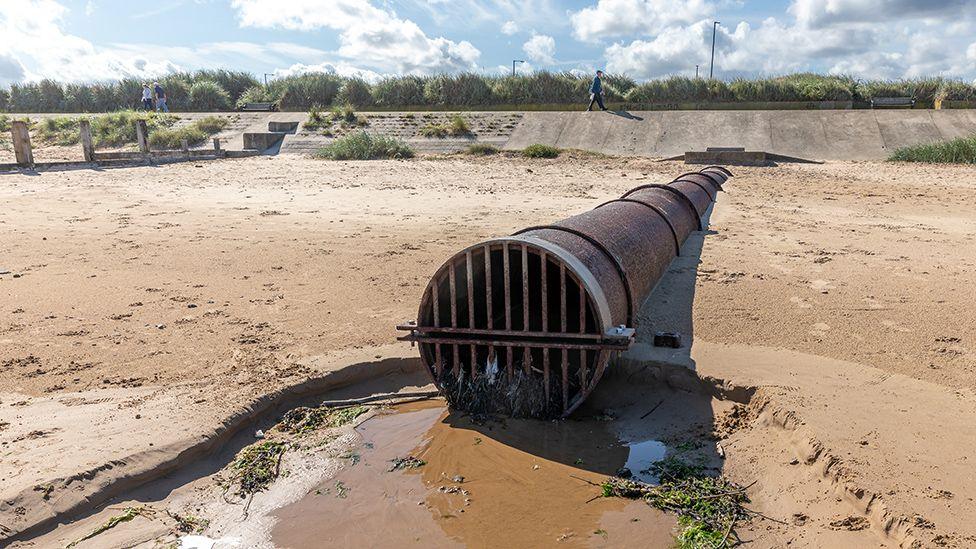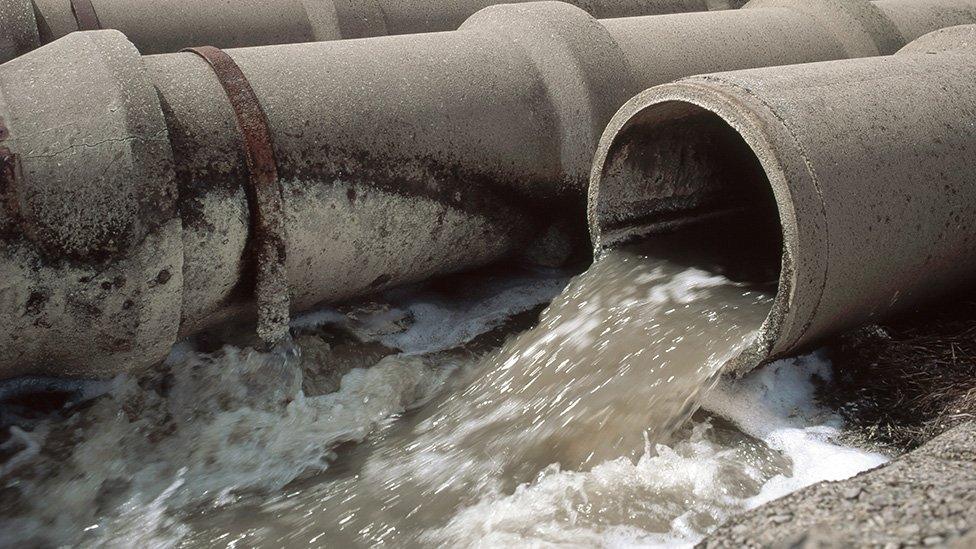Campaigners warn of river pollution after tests
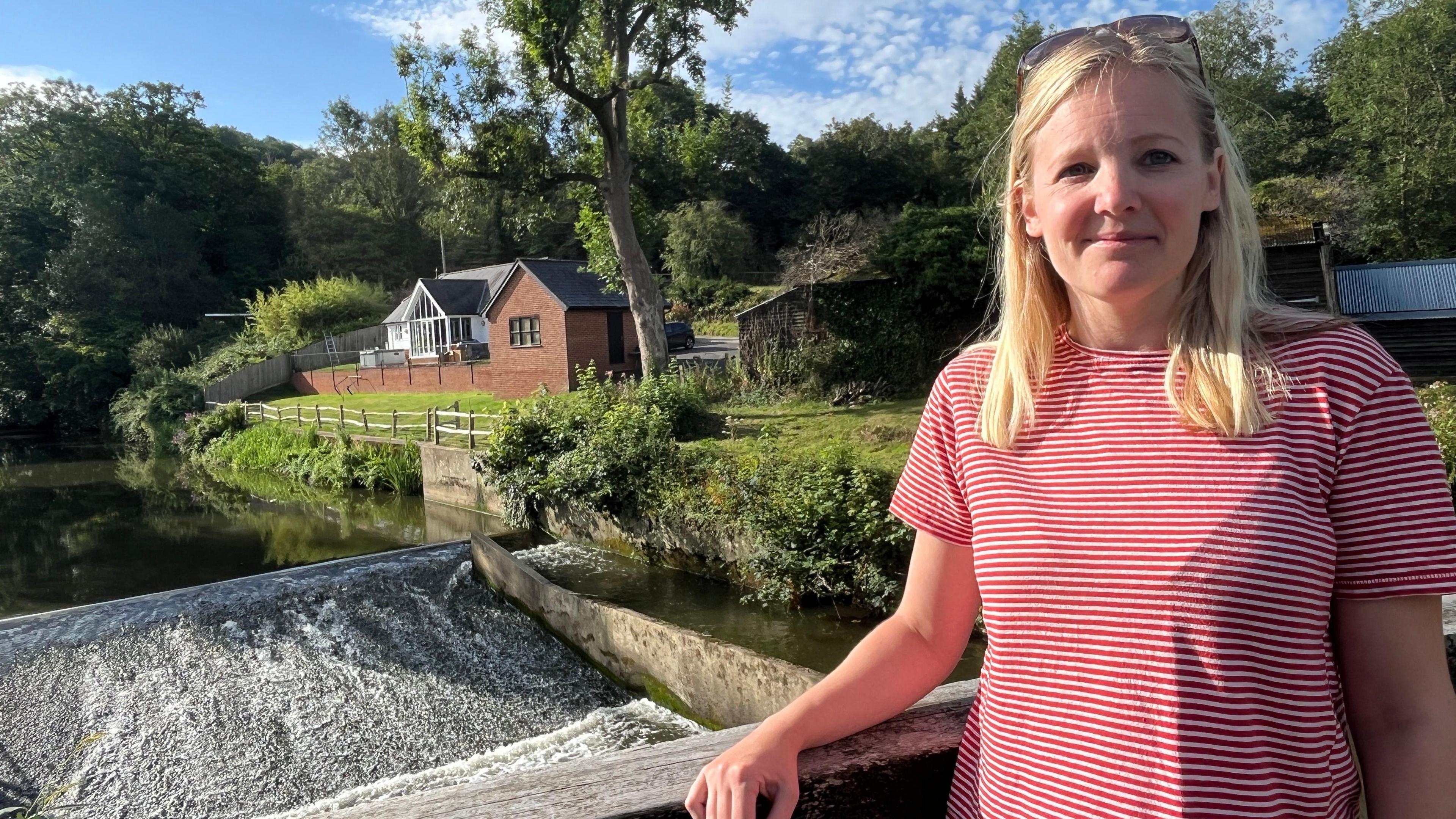
Dr Jess Neumann is an expert in flooding and hydrology at the University of Reading
- Published
A water expert has warned people to stay out of a river in Surrey after recording high levels of pollution.
Dr Jess Neumann, an expert in flooding and hydrology at the University of Reading, said recent readings at the River Mole were concerning.
She said the levels of phosphates were "off the scale" and it was "really not a very good place to be hanging around and swimming in".
Thames Water said although all storm discharges were "unacceptable", the sewage system was historically designed to work in this way, to prevent sewage backing up into people’s homes.
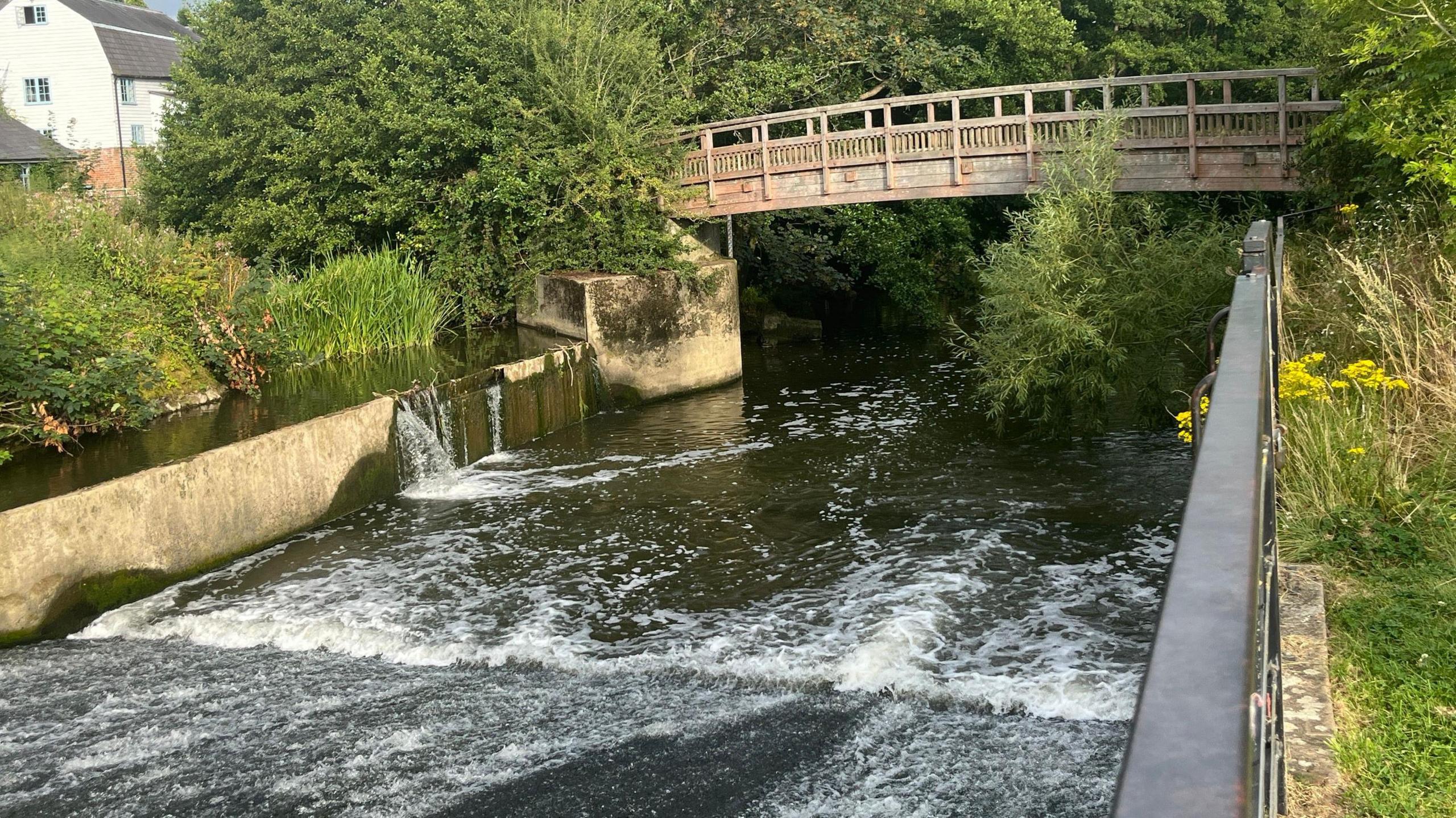
Dr Neumann said the levels of phosphates were "off the scale"
Dr Neumann said: "We’re really concerned about what this means for the quality of our water.
"It's really not in a good condition."
She said there were also "high levels of coliforms" - bacteria which can include E. coli.
Dr Neumann said: "This isn't an issue just with the River Mole. It's something that's happening across the country.”
'Used condoms and tampons'
She warned people to avoid getting the water in their mouths and to clean any wounds.
“We have literally seen faecal matter making its way down the river or getting caught, and things like used condoms and tampons," she said.
Dr Neumann added that the high levels of pollution could have been caused by recent heavy rain as well as discharges of sewage when treatment plants could not cope.
Dorking resident Charmian Murley said: "I would not let my grandkids go in there. It really is very bad. It smells, it's a disgusting colour, and we know it's polluted."
'Clear and deliverable plans'
A Thames Water spokesperson said: "We have clear and deliverable plans to upgrade 250 of our sites across the region, to increase treatment capacity and reduce the number of storm discharges."
The spokesperson explained that farming, industry, road runoff, wildlife, and "increasingly extreme weather" also played a role in river health.
The Environment Agency said regulation of the water industry to protect the environment was one of its top priorities.
It explained that it was recruiting more staff and using data-driven analytics to map discharges so it could quickly direct specialist officers, with water company inspections also being increased.
Follow BBC Surrey on Facebook, external and on X, external. Send your story ideas to southeasttoday@bbc.co.uk, external or WhatsApp us on 08081 002250.
Related topics
- Published25 July 2024
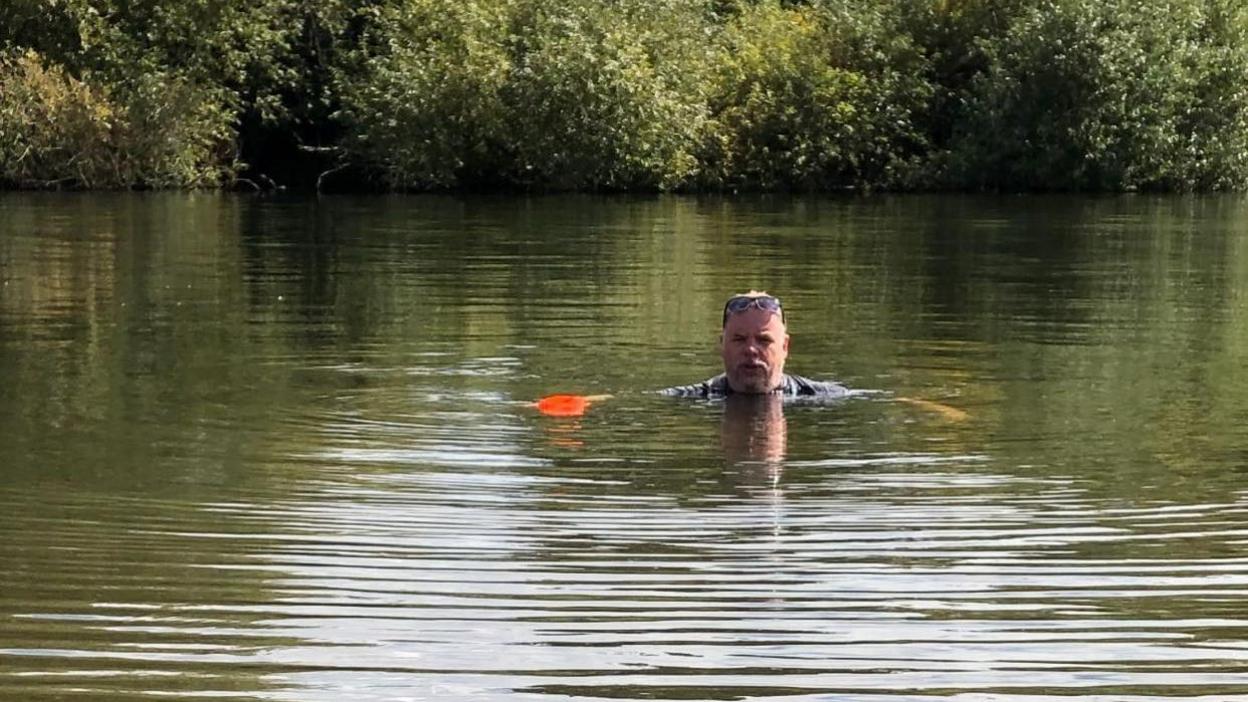
- Published14 June 2024
